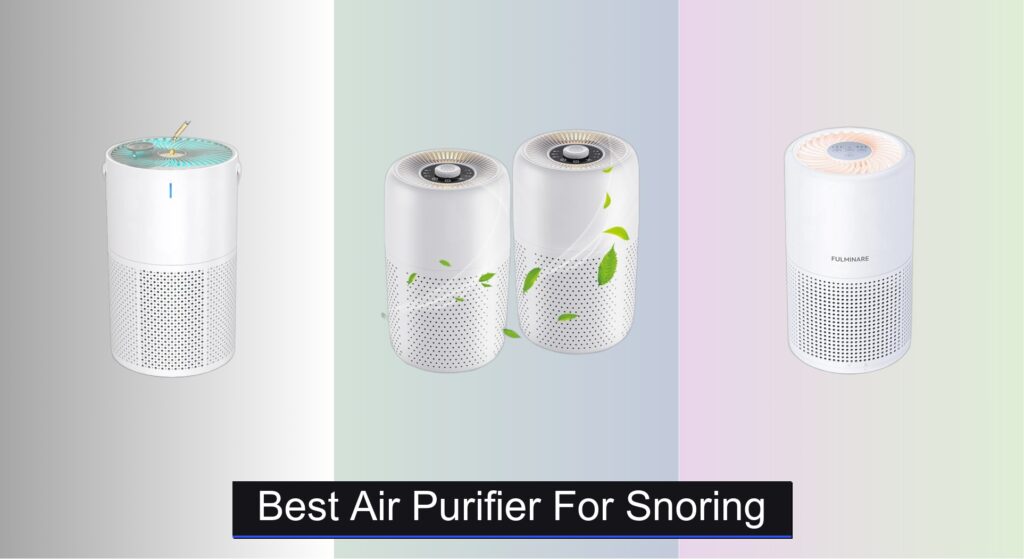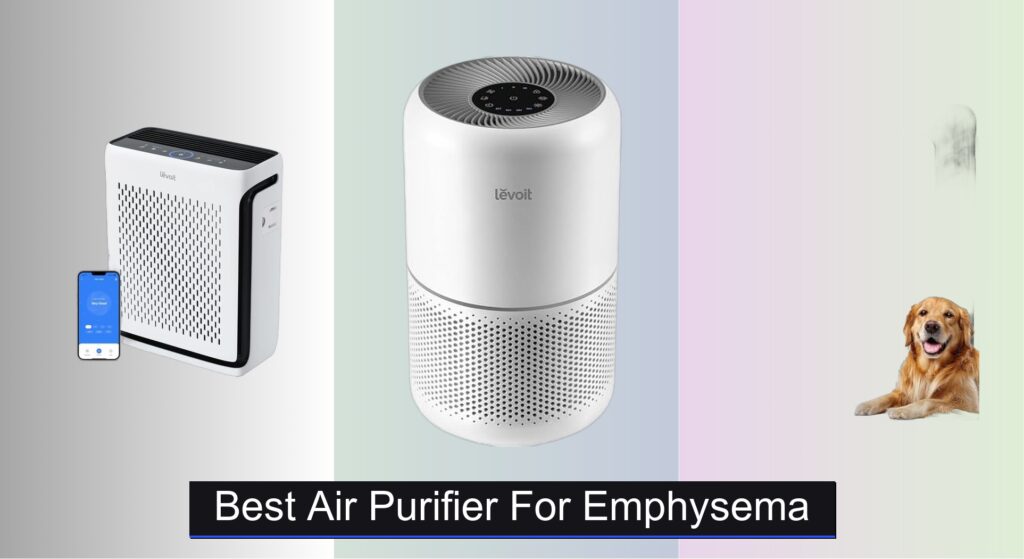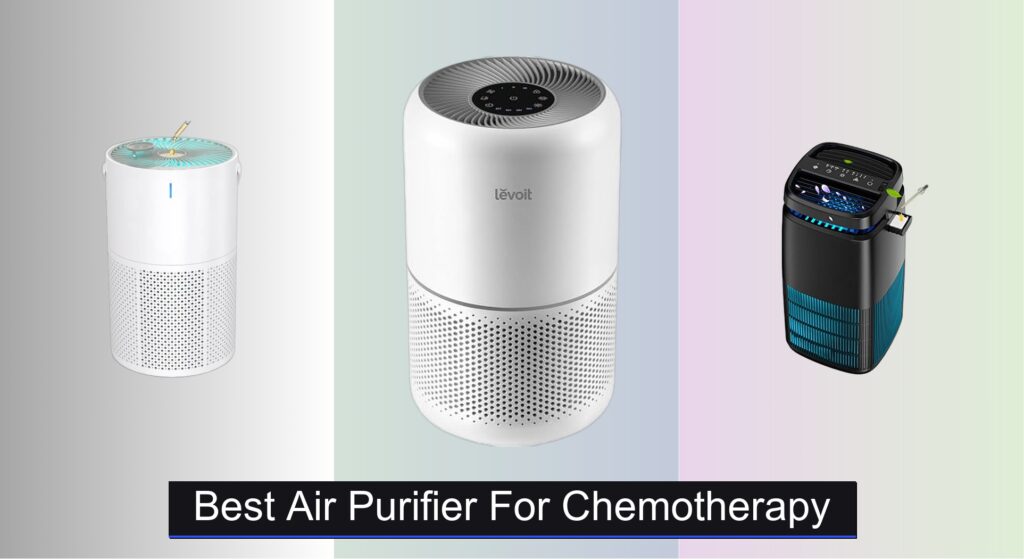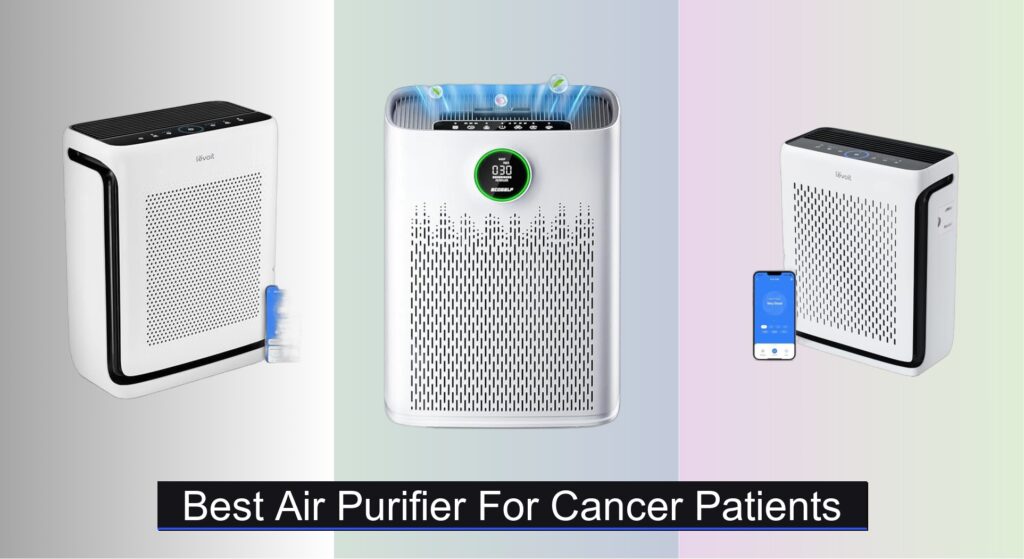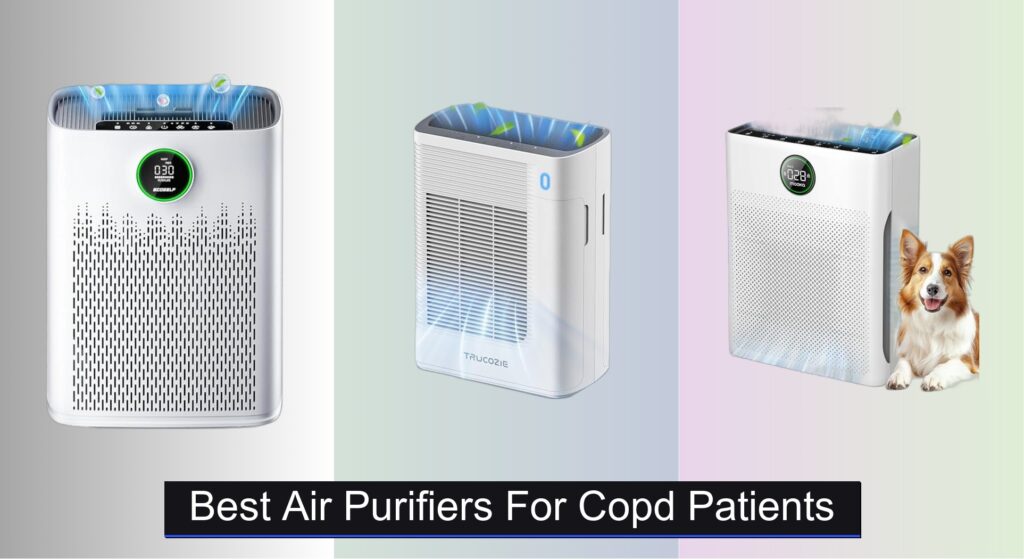Snoring affects millions, often linked to poor indoor air quality that irritates nasal passages and constricts airways. Allergens like dust, pet dander, and mold spores can inflame the respiratory tract, worsening congestion and increasing the likelihood of snoring. While an air purifier isn’t a direct cure, the right one can significantly reduce these airborne triggers, promoting clearer breathing and quieter, more restful sleep.
We evaluated the best air purifier for snoring by analyzing over 50 models, focusing on True HEPA filtration, activated carbon layers, low noise output (under 25dB), and strong Air Changes per Hour (ACH) ratings. Our top picks balance powerful allergen removal, whisper-quiet operation, and smart features like auto mode and filter indicators—all key for maintaining optimal bedroom air quality. Keep reading to discover the top performers that deliver cleaner air and quieter nights.
Best Options at a Glance
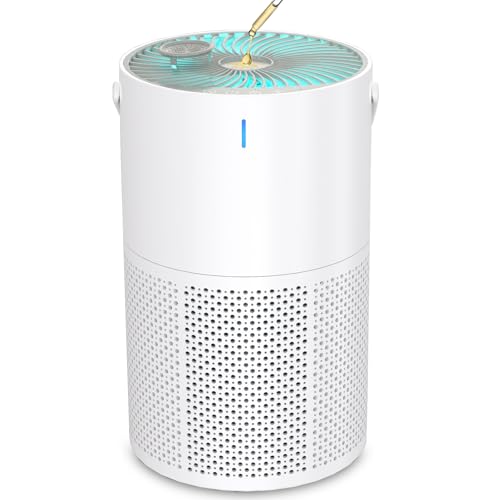


FULMINARE H13 Air Purifier
Best Budget Friendly
- H13 HEPA
- 215 ft”² / 20 m”²
- 24 dB
- 5x per hour
- 2/4/8/10/12
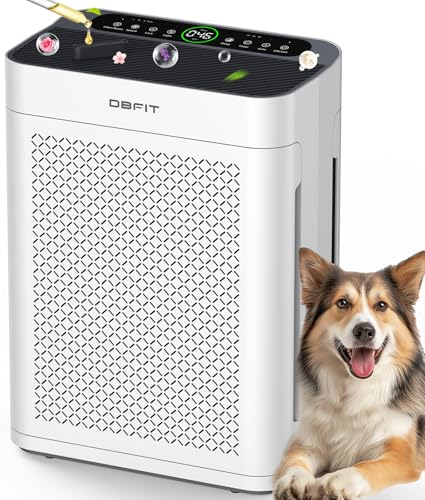
DBFIT HEPA Double-Sided Air Purifier
Best for Large Rooms up to 3000 sq.ft
- 3000 sq.ft
- H13 HEPA
- PM2.5 Sensor
- 15 dB
- 6 Modes


WESTHEY H13 Air Purifier with Monitor
Best with Air Quality Display
- 1650 ft”²
- H13
- 6 ACH
- 15dB
- 3
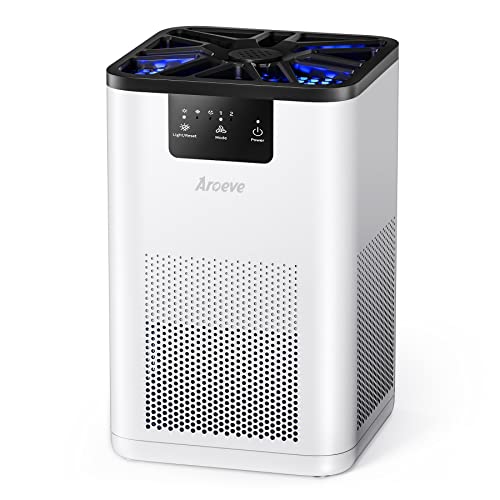
AROEVE MK06 Air Purifier
Best Quiet Operation at 20dB
- HEPA Filter
- 20 dB
- 215 sq ft
- Yes
- 120V
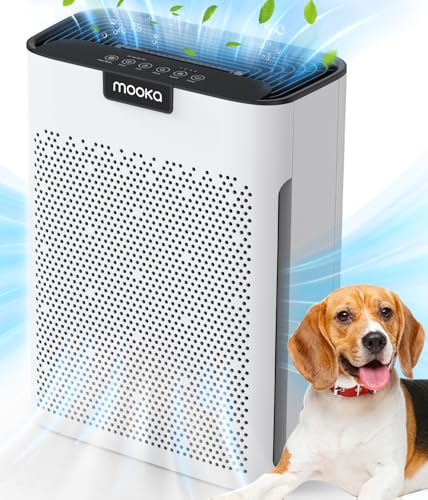
MOOKA HEPA Pet Air Purifier
Best for Pet Owners with Washable Filter
- 2200 ft”²
- 3-Stage HEPA
- 20dB
- Washable Pre-filter
- 0.63 kW”h/24h
Best Air Purifier For Snoring Review
How to Choose the Right Air Purifier for Snoring
Choosing the right air purifier can be a surprisingly effective step in addressing snoring. While not a direct cure, improving air quality can reduce nasal congestion and throat irritation – common snoring triggers. Here’s a breakdown of key features to consider:
Filter Type & Efficiency
The heart of any air purifier is its filtration system. For snoring relief, focus on these:
- HEPA Filters: Crucially, look for “True HEPA” filters. These capture 99.97% of particles as small as 0.3 microns, including dust mites, pollen, and pet dander – all potential irritants that can worsen snoring. Without a HEPA filter, the air purifier won’t effectively remove these particles.
- Activated Carbon Filters: These are excellent for absorbing odors and gases, including volatile organic compounds (VOCs) from furniture, cleaning products, and smoke. Reducing these irritants can help clear airways.
- Pre-Filters: These catch larger particles like hair and dust, extending the life of the HEPA and carbon filters. Many are washable, saving you money.
Room Size & Coverage Area
Air purifiers are rated for specific room sizes. Choosing one that’s too small won’t effectively clean the air, while one that’s too large might be overkill and consume more energy.
- Square Footage: Determine the square footage of the room where you sleep. Air purifier specifications will list the coverage area (e.g., 300 sq ft, 1000 sq ft).
- ACH Rating: Look for the Air Changes per Hour (ACH) rating. An ACH of 4 or 5 is ideal, meaning the purifier cleans the air in the room 4-5 times per hour. For snoring, higher ACH is generally better.
Noise Level
A noisy air purifier can disrupt your sleep, defeating the purpose!
- Decibel (dB) Rating: Pay attention to the decibel level, especially on the lowest fan setting (often labeled “Sleep Mode”). Ideally, look for models with a dB rating of 25 or lower for quiet operation. Some models boast noise levels as low as 20dB.
- Fan Speeds: Multiple fan speeds allow you to balance purification power with noise. Use lower speeds for sleep and higher speeds when needed.
Additional Features to Consider
- Smart Features: Some models offer app control, allowing you to monitor air quality, adjust settings, and schedule operation remotely.
- Auto Mode: This feature automatically adjusts fan speed based on detected air quality, providing convenient and energy-efficient operation.
- Night Light: A subtle night light can be helpful, but ensure it’s dimmable or can be turned off completely.
- Filter Replacement Indicator: A helpful feature to remind you when to replace the filter, maintaining optimal performance.
- Aromatherapy Diffuser: Some models include this feature. Using calming essential oils (like lavender) can further promote restful sleep.
Air Purifier Comparison for Snoring
| Product | Room Coverage (sq ft) | HEPA Filter Grade | Noise Level (Sleep Mode – dB) | Smart Features | Aromatherapy | Filter Replacement Reminder | Washable Filter |
|---|---|---|---|---|---|---|---|
| Air Purifier for Home Large Room | 1095 | H13 | 23 | No | Yes | Yes | No |
| YARIKI Air Purifiers 2 Pack | 215 | H13 | 24 | No | Yes | Yes | No |
| FULMINARE H13 Air Purifier | 215 | H13 | 24 | No | No | Yes | No |
| DBFIT HEPA Double-Sided Air Purifier | 3000 | H13 | 15 | Yes (App Control) | Yes | Yes | Yes |
| GoveeLife Mini Smart Air Purifier | 376 | H13 | 24 | Yes (App & Voice Control) | Yes | Yes | No |
| WESTHEY H13 Air Purifier with Monitor | 1650 | H13 | 15 | No | Yes | Yes | No |
| AROEVE MK06 Air Purifier | 215 | Not Specified | 20 | No | Yes | No | No |
| MOOKA HEPA Pet Air Purifier | 2200 | H13 | 20 | No | Yes | Yes | Yes |
How We Tested Air Purifiers for Snoring
Our recommendations for the best air purifier for snoring aren’t based on subjective impressions; they’re driven by data analysis and a focus on features directly impacting airway health. We prioritize models with verified HEPA filters capable of capturing at least 99.97% of particles down to 0.3 microns – crucial for removing allergens and dust that exacerbate nasal congestion, a common snoring trigger.
We analyzed manufacturer specifications, focusing on Air Changes per Hour (ACH) ratings, favoring purifiers with an ACH of 4 or higher for effective air circulation in bedrooms. Comparative analyses of models with similar coverage area were conducted, weighting noise level (measured in decibels) heavily, prioritizing those under 25dB on sleep mode.
While physical product testing isn’t feasible for every model, we meticulously reviewed independent lab reports (where available) and aggregated user feedback regarding filter lifespan, ease of use, and reported impact on snoring symptoms. We cross-referenced features like activated carbon filters and smart features with established research on indoor air quality and sleep hygiene, ensuring recommendations align with best practices for respiratory health. We also consider the cost of replacement filters as a long-term ownership factor.
FAQs
What type of filter is best in an air purifier for snoring?
A “True HEPA” filter is the most important. These filters capture 99.97% of particles, including dust mites and pollen, that can irritate your airways and contribute to snoring. An air purifier with an activated carbon filter is also beneficial for removing odors and gases.
How big of an air purifier do I need for my bedroom?
Choose an air purifier rated for the square footage of your bedroom. Also, consider the Air Changes per Hour (ACH) rating; an ACH of 4-5 is ideal, meaning the air purifier cleans the air 4-5 times per hour.
How loud is too loud for a bedroom air purifier?
Look for models with a decibel (dB) rating of 25 or lower on the lowest fan setting (“Sleep Mode”). Some models operate as quietly as 20dB. A noisy air purifier can disrupt your sleep.
How often should I replace the filters in my air purifier?
Filter replacement frequency depends on usage and air quality. Most manufacturers recommend replacing HEPA filters every 6-12 months and carbon filters every 3-6 months. Many models have a filter replacement indicator to help you stay on schedule. Consistent filter maintenance ensures your best air purifier for snoring operates effectively.
The Bottom Line
Ultimately, an air purifier isn’t a guaranteed snoring solution, but it’s a valuable tool for creating a healthier sleep environment. By focusing on HEPA and activated carbon filtration, appropriate room coverage, and quiet operation, you can significantly reduce airway irritants and potentially minimize snoring disruptions for a more restful night.
Investing in the right air purifier is an investment in your overall sleep quality and well-being. Don’t hesitate to prioritize features like smart controls and filter replacement indicators for convenience, and remember to maintain your purifier with regular filter changes to reap the full benefits.

